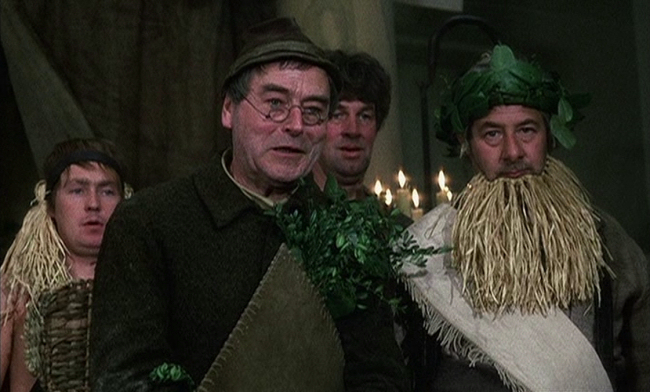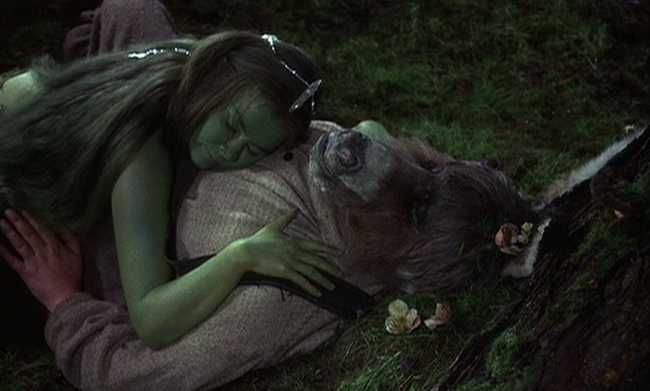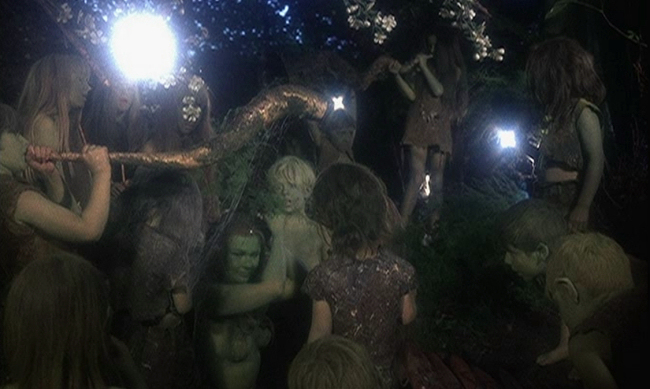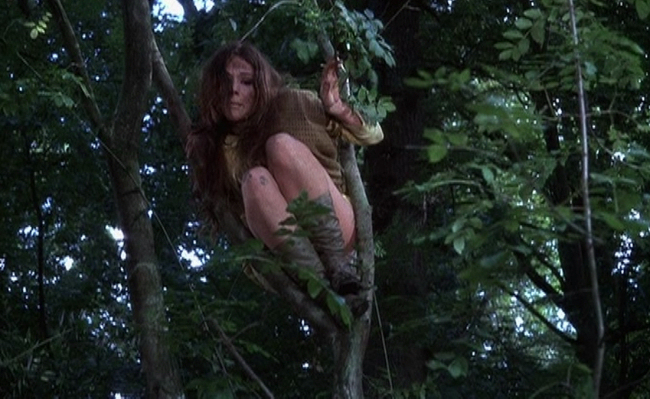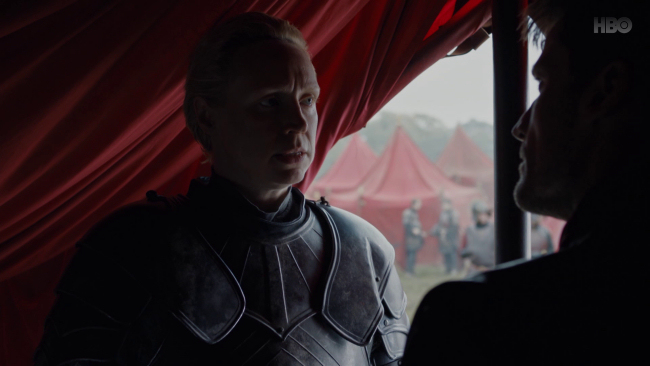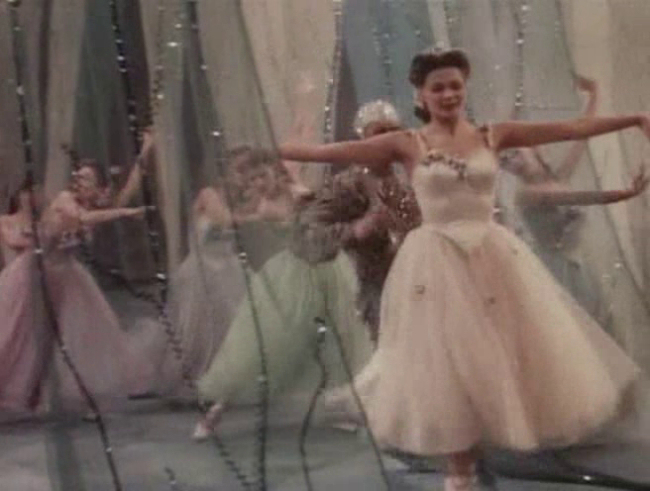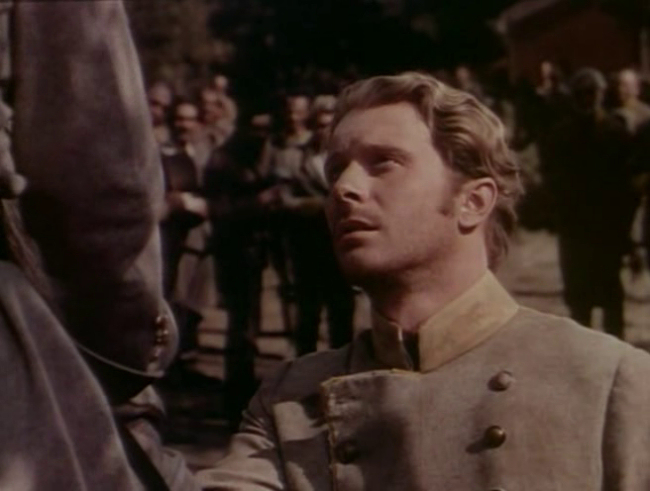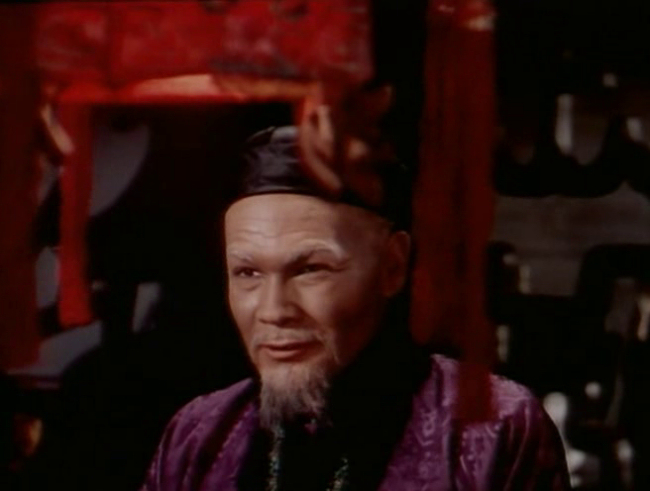
What if Moses was a brain surgeon? 1954's The Egyptian is a lavish sand and sandal film about a physician in Egypt who was found as a baby abandoned in a little boat of reeds on the river. The movie has some spectacle, some beautifully garish Technicolor, beautiful women, good performances, and a plot with a few intriguing ideas sadly lacking in much natural character interaction.
The two best characters in the film aren't even the top billed stars--Bella Darvi as the Babylonian enchantress Nefer and Peter Ustinov as the one eyed servant, Kaptah.
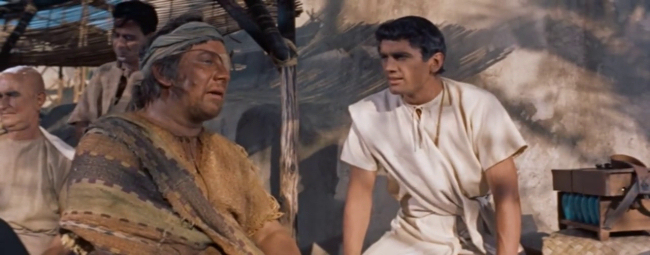
There's not much to Kaptah--he's a thief who for no particular reason pleads with the orphan physician, Sinuhe (Edmund Purdom), to take him on as a servant. His antics--calling out for a crowd to promote his master while he's healing someone or lifting some food from a market stall while Sinuhe argues with the owner--aren't very original pieces of business but Ustinov makes the man so wonderfully human, particularly compared to Edmund Purdom's endlessly dreary, stiff performance as the main character.
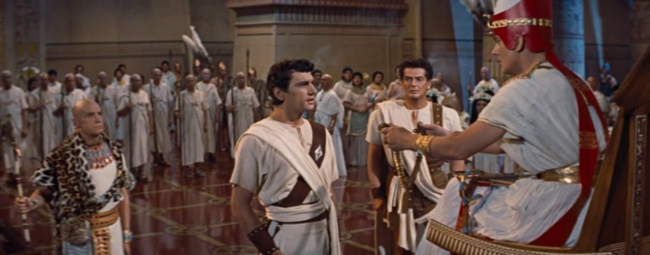
The name Sinuhe comes from an ancient Egyptian story, one that apparently bears little resemblance to the story depicted in The Egyptian or the book its based on, though I wouldn't be surprised if the original tale has some similarities to Moses' story. In any case, the resemblance is certainly played up in the film--it's almost the exact opposite of Moses, actually. Instead of an infant from a marginalised group being taken in by royalty, it's a royal infant taken in by a poor brain surgeon and his family.

Yes, brain surgery. The adoptive father of Sinuhe is the only one who has the secret knowledge of curing people by cutting their heads open, a knowledge he passes on to Sinuhe. So I guess Sinuhe didn't wind up with just any poor family. His best friend, too, is auspicious--Horemheb, played by Victor Mature, one of several characters in the film based on a real person.
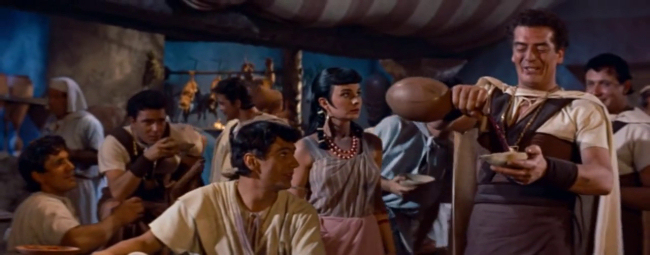
Sinuhe and Horemheb save the Pharaoh (Michael Wilding) from a lion and so Sinuhe is made court physician and Horemheb becomes captain of the guard. But from here the story immediately gets sidetracked as Sinuhe is seduced by the beautiful Nefer.
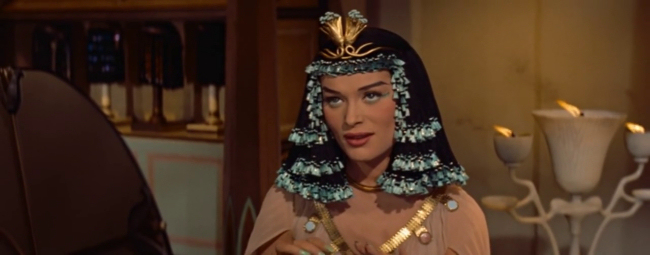
In a movie that also has Jean Simmons and Gene Tierney it's saying something that Darvi is the standout. She's terrific in a role that's pretty badly written, a role, according to Wikipedia, Marilyn Monroe coveted but was given to the virtually unknown Polish actress who was destined to star in only three Hollywood films because she was the lover of producer Darryl Zanuck. I recommend reading Darvi's Wikipedia entry which tells about the beautiful, openly bisexual Jewish actress who was imprisoned by the Nazis when she was a child and committed suicide in 1971.
Sinuhe still seems improbably dumb for giving her the deeds to his and his parents' houses even though she never asked for them but in this clumsily conceived seduction plot Darvi's charm works magnificently. Even an Atlas of charm couldn't hold up this turkey but Darvi does have some help from the Technicolor, simulated nudity (flesh coloured underwear), and Bernard Herrmann's score.

The film, atypically, has two credited composers--Bernard Herrmann and Alfred Newman--it's in the scenes with Darvi that Herrmann's contributions are unmistakable and one hears something of the Wagnerian, cycling strings from Vertigo in the scenes between Sinuhe and Nefer. If Purdom had been a decent actor, the scenes might have even overcome the screenplay. If only someone working on the film had had the idea to swap Wilding's and Purdom's roles.

Of course, it almost wouldn't be a 1950s sand and sandal epic without Jean Simmons who plays an innocent barmaid who falls in love with Sinuhe. She only has one decent scene in this one where she meets Sinuhe at home to try to draw him away from Nefer. When she talks about the men she's studied in the tavern and how Sinuhe's the shy sort who, because they're afraid of being happy with a good woman they end up falling for a dangerous one, might have come across as insightful if Nefer actually came across as responsible for all the stupid things Sinuhe does.

As sister of the Pharaoh, Gene Tierney has a small but important role, this from the period in Tierney's career when severe depression and physical illness were getting in the way of her memorising lines. But she has great presence and looks perfect in costume. The film also has Henry Daniell in a small but very effective role as a sinister high priest.

His priests are trying to maintain their customs despite a Pharaoh who's decided to push a monotheistic worship of the sun god Aten, apparently something that the Pharaoh Akhenaten, whom Wilding plays, actually did. Though the movie, with Sinuhe's Moses stuff, embellishes the similarities of the Aten worship to Judaism and Christianity a great deal. It's interesting the filmmakers felt such a strong urge to support Christian morals even in fantasy a story set over a thousand years before Christ. Though they don't seem to have thought it through very well as the events in the film implicate God in the pointless slaughter of hundreds of innocent people.








